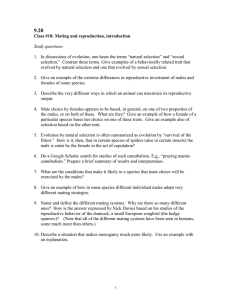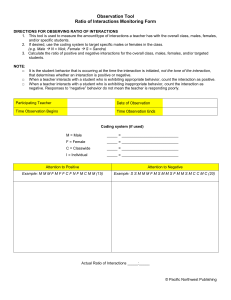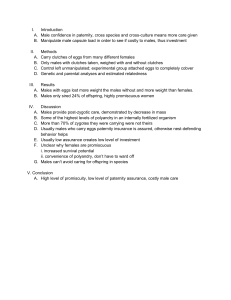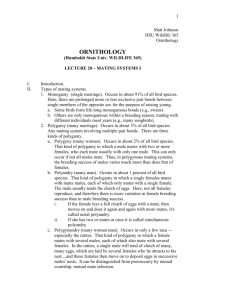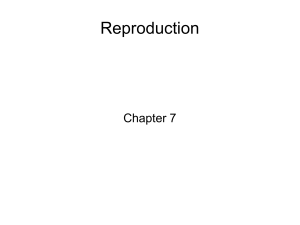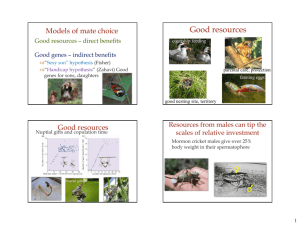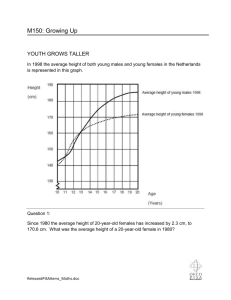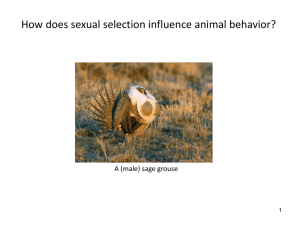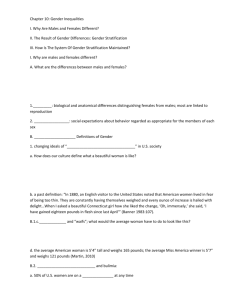Placenta evolution increases fish promiscuity
advertisement
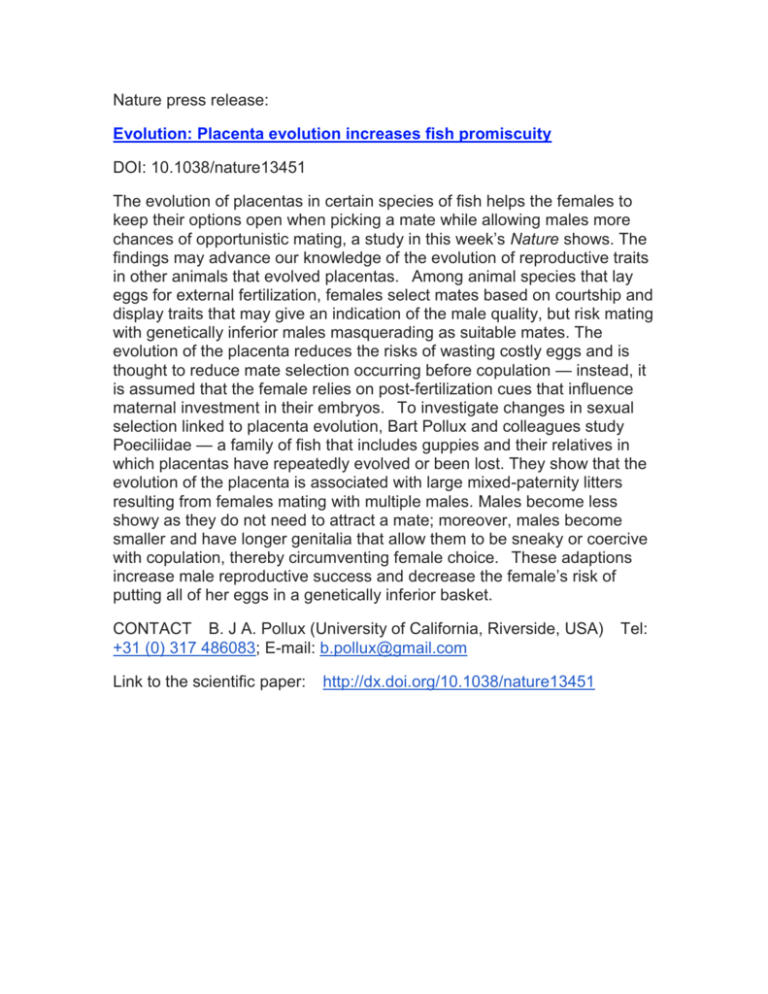
Nature press release: Evolution: Placenta evolution increases fish promiscuity DOI: 10.1038/nature13451 The evolution of placentas in certain species of fish helps the females to keep their options open when picking a mate while allowing males more chances of opportunistic mating, a study in this week’s Nature shows. The findings may advance our knowledge of the evolution of reproductive traits in other animals that evolved placentas. Among animal species that lay eggs for external fertilization, females select mates based on courtship and display traits that may give an indication of the male quality, but risk mating with genetically inferior males masquerading as suitable mates. The evolution of the placenta reduces the risks of wasting costly eggs and is thought to reduce mate selection occurring before copulation — instead, it is assumed that the female relies on post-fertilization cues that influence maternal investment in their embryos. To investigate changes in sexual selection linked to placenta evolution, Bart Pollux and colleagues study Poeciliidae — a family of fish that includes guppies and their relatives in which placentas have repeatedly evolved or been lost. They show that the evolution of the placenta is associated with large mixed-paternity litters resulting from females mating with multiple males. Males become less showy as they do not need to attract a mate; moreover, males become smaller and have longer genitalia that allow them to be sneaky or coercive with copulation, thereby circumventing female choice. These adaptions increase male reproductive success and decrease the female’s risk of putting all of her eggs in a genetically inferior basket. CONTACT B. J A. Pollux (University of California, Riverside, USA) Tel: +31 (0) 317 486083; E-mail: b.pollux@gmail.com Link to the scientific paper: http://dx.doi.org/10.1038/nature13451
